10 Minutes 38 Seconds in This Strange World
R270Capturing the evocative recollections of Tequila Leila in the ten minutes after her death, Shafak’s spellbinding novel extracts the value of a fully-lived life from its untimely ending.
Showing 1–16 of 21 results
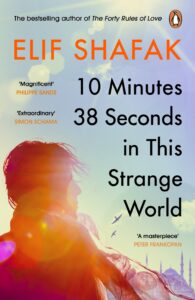
Capturing the evocative recollections of Tequila Leila in the ten minutes after her death, Shafak’s spellbinding novel extracts the value of a fully-lived life from its untimely ending.
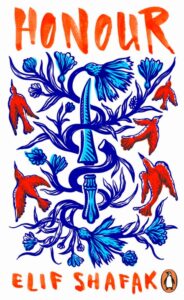
Set in Turkey and London in the 1970s, Honour explores pain and loss, loyalty and betrayal, the clash of tradition and modernity, as well as the love and heartbreak that can tear any family apart.

A re-imagining of the fable in terms of the 17 Sustainable Development Goals, in a variety of theatrical styles, catalyzing debate and transferring knowledge through humor, satire and drama.

My Brilliant Friend is a rich, intense and generous hearted story about two friends, Elena and Lila. Ferrante’s inimitable style lends itself perfectly to a meticulous portrait of these two women that is also the story of a nation and a touching meditation on the nature of friendship. Through the lives of these two women, Ferrante tells the story of a neighbourhood, a city and a country as it is transformed in ways that, in turn, also transform the relationship between her two protagonists.
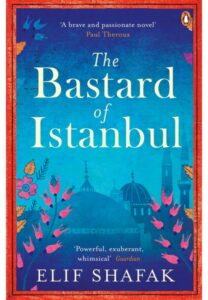
The Bastard of Istanbul tells the story of two families–and a secret connection linking them to a violent event in the history of their homeland. Filed with humor and understanding, this exuberant, dramatic novel is about memory and forgetting, about the need to examine the past and the desire to erase it, and about Turkey itself.

Elena Ferrante‘s The Story of a New Name is the second chapter in the series, following 2012’s acclaimed My Brilliant Friend, featuring the two friends Lila and Elena. The two protagonists are now in their twenties. Marriage appears to have imprisoned Lila. Meanwhile, Elena continues her journey of self-discovery. The two young women share a complex and evolving bond that brings them close at times, and drives them apart at others. Each vacillates between hurtful disregard and profound love for the other. With this complicated and meticulously portrayed friendship at the center of their emotional lives, the two girls mature into women, paying the sometimes cruel price that this passage exacts.

In this third Neapolitan novel, Elena and Lila, the two girls whom readers first met in My Brilliant Friend, have become women. Lila married at sixteen and has a young son; she has left her abusive husband and now works as a common laborer. Elena has left the neighborhood, earned her college degree, and published a successful novel, all of which have opened the doors to a world of learned interlocutors and richly furnished salons. Both women have pushed against the walls of a prison that would have seen them living a life of misery, ignorance, and submission. They are afloat on the great sea of opportunities that opened up during the nineteen-seventies. Yet they are still very much bound to each other by a strong, unbreakable bond.

Set against the backdrop of the success of the first democratic elections and the launch of the Truth and Reconciliation Commission in South Africa, Zulu Love Letter is a story of two mothers in search of their daughters.
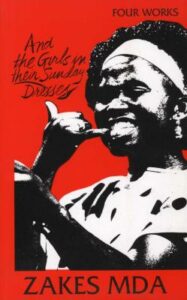
Two very different women meet during a long wait to buy subsidized rice and discover they have more in common than their poverty; an old man and child share a last, loving waltz; a cynical, disabled gangster learns humanity from a committed social worker; and a young girl finds her missing father and her role in the political struggle.

In 1994 when South Africans were finally seeing the light of freedom and independence, three well-respected businesswomen
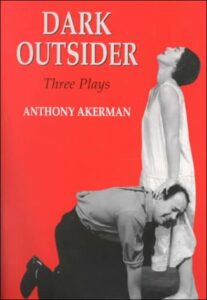
Life in exile, the poet Roy Campbell, and the world of a boys’ boarding school are the three topics explored in this, the first collection of the work of one of South Africa’s leading playwrights, Anthony Akerman.
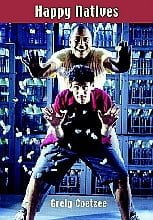 Out of stock
Out of stockHappy Natives is very contemporary, looking at the way in which South Africans struggle to define their present identity. The play is extremely gripping, very funny and yet keeps surprising the audience with its insight into the complexities of cross-cultural relationships, ten years on from the start of the rainbow nation.

Violence and tragedy lurk in this seaside town, and when Joanna’s world is shaken to its core, it is up to her to find her own brand of muti.
But how much of history is chance? And when does revenge become insanity?
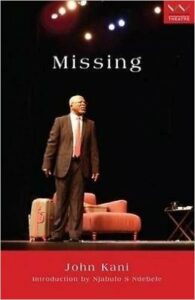
Missing is the story of Robert Khalipa , an ANC Cadre living in exile, who is very senior in the Organisation but is left out of the negotiations and almost forgotten in Sweden.
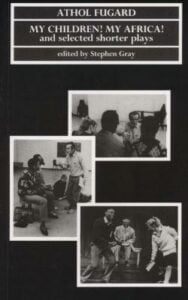
In his introduction to this collection, Stephen Gray states that ‘there can be no artistic grounds on which to uphold a belief that “short” implies “lesser”‘; he goes on to make the point that ‘Fugard seems naturally to be most at ease when working in compact dense forms’.
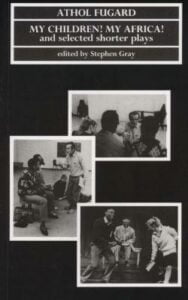
In his introduction to this collection, Stephen Gray states that ‘there can be no artistic grounds on which to uphold a belief that “short” implies “lesser”‘; he goes on to make the point that ‘Fugard seems naturally to be most at ease when working in compact dense forms’.
No products in the basket.